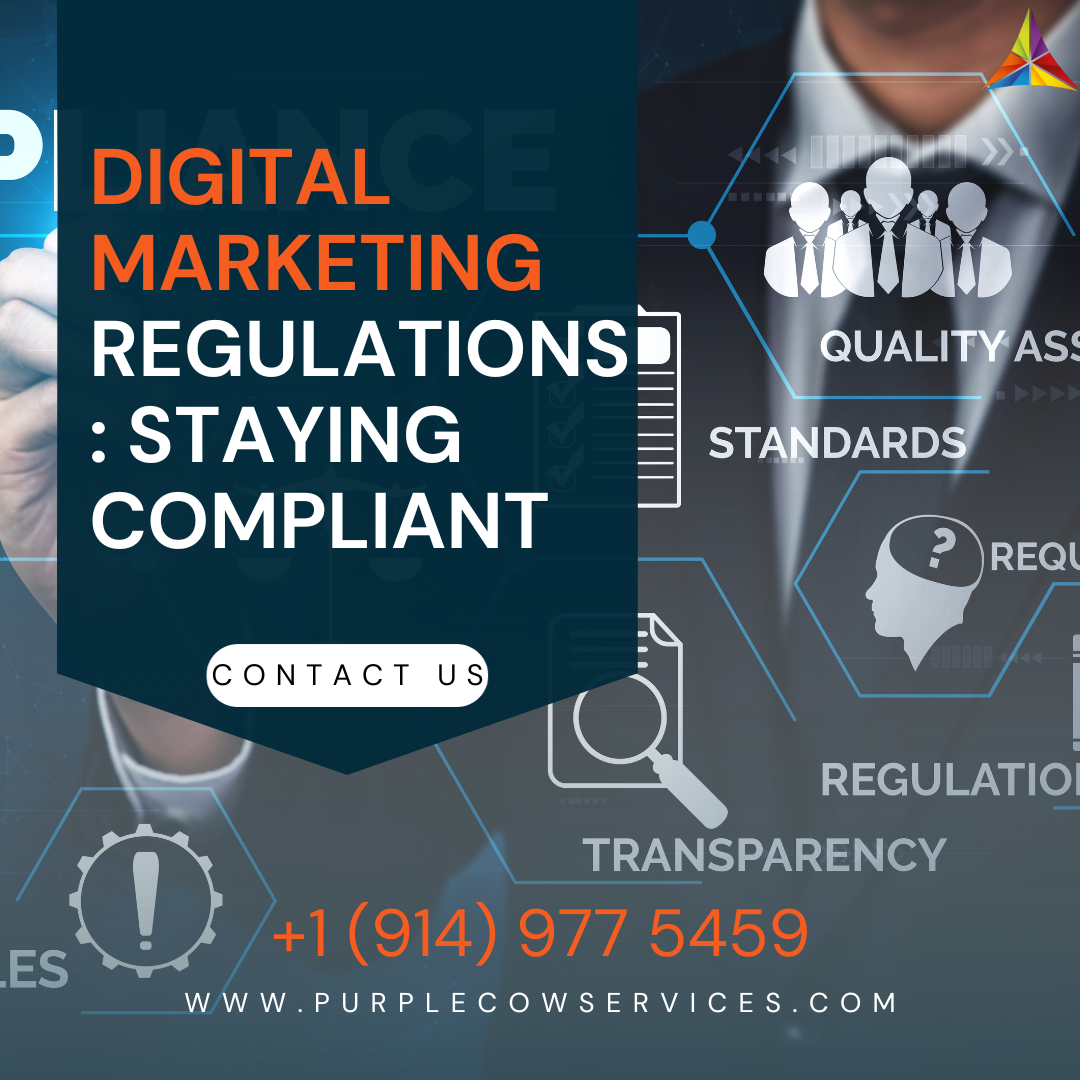In the ever-evolving realm of digital marketing, staying compliant with regulations is paramount. Recent years have witnessed a seismic shift in the way businesses promote their products and services.
Share This Story, Choose Your Platform!
In the ever-evolving realm of digital marketing, staying compliant with regulations is paramount. Recent years have witnessed a seismic shift in the way businesses promote their products and services. The advent of technology, the rise of social media, and changing consumer behaviors have reshaped the digital marketing landscape.
Today, digital marketing extends far beyond traditional advertising methods. It encompasses social media marketing, email campaigns, influencer collaborations, data analytics, and more. While these tools offer unprecedented opportunities to reach a global audience, they also bring new challenges in terms of regulation and compliance.
The Importance of Compliance
Why is compliance so crucial in the world of digital marketing? It’s not just a matter of legal requirements; it’s about building and maintaining trust with your audience. Consumers are becoming increasingly aware of their digital rights, and they expect businesses to respect those rights.
Non-compliance can lead to severe consequences, including legal penalties, damage to reputation, and loss of customers. Moreover, with data privacy concerns on the rise, it’s essential to be transparent about how you collect, store, and use customer data.
GDPR and Data Privacy
One of the most significant developments in recent years is the General Data Protection Regulation (GDPR), which came into effect in the European Union. GDPR has far-reaching implications for businesses worldwide, as it applies to any organization that processes the data of EU citizens.
Under GDPR, individuals have greater control over their personal data. They must provide explicit consent for data collection, and they have the right to access, correct, or delete their data. For marketers, this means being more transparent about data practices and ensuring that opt-in mechanisms are clear and easy to use.
CAN-SPAM Act for Email Marketing
Email marketing remains a powerful tool for businesses to connect with their audience. However, sending unsolicited emails can lead to legal trouble. In the United States, the Controlling the Assault of Non-Solicited Pornography And Marketing (CAN-SPAM) Act sets the rules for commercial email communication.
CAN-SPAM requires that marketing emails contain accurate header information, provide recipients with an easy way to unsubscribe, and clearly indicate that the message is an advertisement. Marketers must also honor opt-out requests promptly.
Transparency in Advertising
Transparency is a cornerstone of modern digital marketing. Federal Trade Commission (FTC) guidelines in the United States, as well as similar regulations worldwide, require businesses to be open and honest about sponsored content and endorsements.
Marketers must disclose any material connections they have with influencers, disclose paid promotions, and avoid making false or misleading claims. Failure to do so can result in regulatory action and damage to a brand’s reputation.
Digital Marketing and Children
When it comes to advertising to children, regulations are even stricter. The Children’s Online Privacy Protection Act (COPPA) in the United States places restrictions on collecting data from children under 13 without parental consent. Marketers targeting young audiences must ensure compliance with these rules.
Adapting to Regulatory Changes
The digital marketing regulatory landscape is dynamic. Regulations evolve as new challenges emerge and technologies advance. To stay compliant, marketers must remain vigilant and adaptable. Regularly review and update your practices to align with the latest requirements and consumer expectations.
Best Practices for Compliance
While navigating the regulatory landscape can be complex, some best practices can help marketers stay on the right side of the law. These include conducting regular compliance audits, providing clear opt-in and opt-out mechanisms, offering transparent disclosures, and staying informed about legal developments in the industry.
The Benefits of Compliance
Compliance with digital marketing regulations isn’t just about avoiding legal trouble. It’s an opportunity to build trust with your audience and demonstrate your commitment to ethical marketing practices. When consumers trust your brand, they are more likely to engage with your content, make purchases, and become loyal customers.
Conclusion
In a digital world filled with marketing noise, compliance is a beacon of trust and responsibility. It’s an assurance to your audience that you respect their rights and value their trust. By staying informed, adapting to change, and adhering to best practices, marketers can navigate the regulatory landscape successfully while reaping the benefits of a compliant and ethical approach to digital marketing.
Unlock Your Digital Marketing Potential with Purple Cow Services! Our expert team guides you through the intricate world of digital marketing regulations, ensuring your campaigns remain compliant and trustworthy. Stay ahead of the curve, build consumer trust, and avoid legal pitfalls. From GDPR to CAN-SPAM, we’ve got you covered. Partner with us for transparent, ethical, and effective digital marketing strategies that resonate with today’s savvy consumers.
Discover the Essentials of Staying Compliant in Digital Marketing. Dive into the world of digital marketing regulations and learn how to navigate them effectively. Stay on the right side of the law while creating successful campaigns. Explore GDPR, CAN-SPAM, and more. Your guide to ethical and compliant digital marketing awaits!
Share This Story, Choose Your Platform!
In This Blog:
















